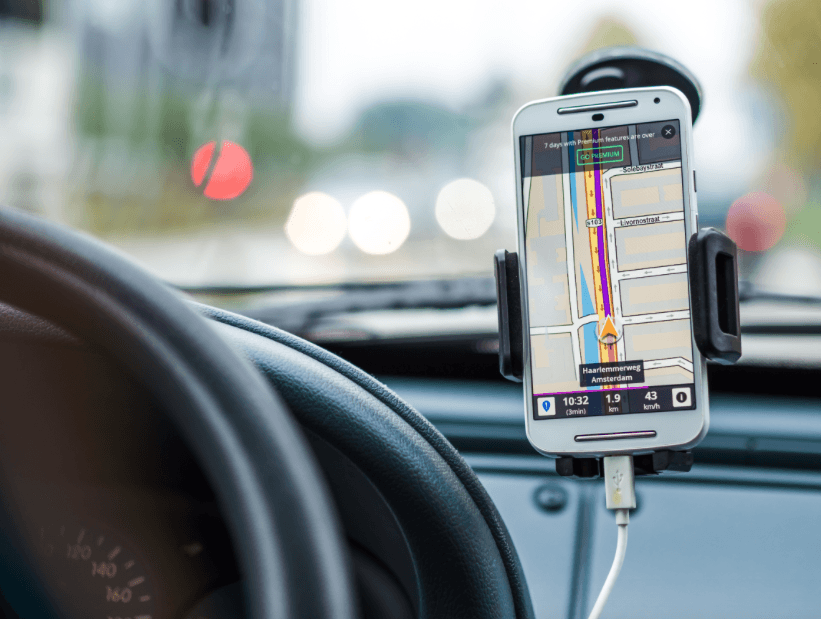The sharing economy is making news in many industries. Companies such as Uber, Lyft, and Airbnb have completely transformed the way people get rides and book accommodations. Similar disruptions are happening in many other fields. Yet, as popular as these companies are, it’s taken quite some time for people to accept this new business model. Why does it take some people so long to accept new ways of doing business? Many people still don’t understand the appeal of the sharing economy. Let’s look at some of the factors that determine how long it takes for people to accept new business models.

The Sharing Economy: What it is and How it’s Different
In order to understand why it takes time for people to accept sharing economy businesses, it’s first necessary to define the sharing economy itself and understand what makes it so different from traditional businesses. The sharing economy, also called the collaboration economy, refers to business arrangements that are peer-to-peer rather than centralized. For example, Uber and Lyft are ride sharing services where riders and drivers connect through an app. These businesses are challenging taxi companies, which were, for a long time, the traditional way for people to arrange rides in cities. For example, Uber and Lyft are ride sharing services where riders and drivers connect through an app. Drivers are not employees of the ride-sharing service but independent contractors. These businesses are challenging taxi companies, which were, for a long time, the traditional way for people to arrange rides in cities. A taxi service is a traditional business model where the company hires drivers and supplies them with vehicles and pays them a salary.
Similarly, Airbnb is disrupting the travel industry by allowing travelers to book rooms directly from homeowners. Once again, the homeowner doesn’t work for Airbnb but is independent. These are just the best-known examples of share economy businesses. Many others are now springing up in industries such as housecleaning, errands, food delivery, and much more. Bitcoin and other cryptocurrencies are perhaps an even more revolutionary example of how the sharing economy is disrupting the very foundations of our economy. The cryptocurrency market cap is now over 30 billion. The growth of these decentralized digital currencies shows that many people are ready to accept radical alternatives when paying out and receiving funds.
Some of the main characteristics of share economy businesses include:
- Prices are often lower than for comparable traditional businesses. This is because peer-to-peer arrangements remove many common business costs. Companies such as Uber and Airbnb have few employees, for example. They require little office space or equipment to operate.
- Communication between users and suppliers of services is direct. Apps provide a direct link between someone who wants a service and someone who provides it. The company provides support and manages the app but doesn’t get involved in daily transactions. Additionally, many aspects of the transaction are automated. Riders arrange for a Lyft or Uber ride by pressing a few buttons on their smartphones. This is in contrast to traditional business transactions where more elaborate communication, either in person or by phone, is usually required.
- Sharing economy services depend on trust and reputation. When someone books a ride, room, parking space, or any other service, he or she places a certain amount of trust in a stranger. Reviews and ratings help to alleviate concerns about this. As with online auction sites such as eBay (which, arguably, is an early example or precursor to sharing economy businesses), reputation management is crucial to share economy service providers. To some extent, traditional businesses also depend on trust. However, the difference is that in the sharing economy, people trust individuals more than the company itself. People, for example, usually rate their Uber drivers or Airbnb hosts rather than Uber or Airbnb.
The above characteristics highlight some of the benefits of the sharing economy. Compared to traditional businesses, services are often cheaper, faster, and simpler to arrange. Why, then, does it take so long for people to accept this business model? There are several reasons.

Why People Are Reluctant to Accept the Sharing Economy
To be clear, some people embraced share economy businesses right from the get-go. These early adopters helped to launch Uber and other such businesses to success. Why, however, wasn’t the share economy model more widely accepted? And why is it still distrusted and resisted by so many people? Here are a few of the main reasons:
- Some people are simply slow to accept change. Change is unsettling for people who are set in their ways. That’s why millennials support the sharing economy so enthusiastically. This, of course, is a generalization as many older people also embrace new business models.
- Resistance from traditional businesses. Share economy businesses have seriously challenged traditional businesses in their respective sectors. This has, understandably, led to a strong backlash. As politicians and special interests (e.g. taxi companies) propose legal action against share economy businesses, they also do their best to undermine this business model in the public’s eye.
- Lack of trust. As noted, the sharing economy relies on trust. Some people find this unsettling. The idea of trusting a stranger for a ride, room, or other good or service is anxiety-provoking for some.
These are the main barriers some people have when it comes to accepting the sharing economy. Despite these challenges, however, many businesses using this model are marching forward.

How Resistance to the Share Economy Will Diminish
Change always happens incrementally. New innovations, including the automobile, television, and internet were not universally accepted by everyone. The sharing economy is no exception to this rule. Despite hiccups and resistance, however, the share, gig, or collaborative economy is too big and significant a movement to fade away. This is not a mere trend but a fundamental shift in the way people interact and the economy operates. As with other innovations, there’s usually a certain tipping point when more people accept than resist the changes. The tipping point is rapidly approaching. Let’s look at some of the factors that are likely to hasten the widespread embracing of the sharing economy.
- Widespread use of smartphones and other mobile devices. Many sharing economy services are intimately tied to smartphone apps. Statista estimates that the number of smartphone users in the United States will exceed 222 million in 2017 and reach 264 million by 2021. As people get more and more attached to their mobile devices and apps, they’ll get more comfortable using them to order goods and services.
- Trust builds over time. When something is new, people often have unrealistic fears about it. Such fears are exacerbated when occasional news stories surface about abusive Uber drivers or hellish conditions at an Airbnb. Of course, bad things happen everywhere, including taxi cabs and hotel rooms. But because of the relative newness of share economy businesses, such cases are bigger news. As people get more accustomed to sharing economy services, misgivings about using them will decline.
- More share economy businesses will get people more comfortable with the idea. As more and more sharing economy businesses appear in diverse industries, the idea will get familiar and normalized.
- Services will improve. As the sharing economy matures, companies will develop ever more efficient policies, apps, and safeguards. This will make it even easier for consumers to embrace this business model.
The sharing economy is still quite new. Considering this, what’s really amazing is how widely accepted it already is. A poll by Time from over a year ago revealed that around 44% of Americans have, in one way or another, participated in this new business model. This is only increasing over time. As people get more comfortable and familiar with the logistics of sharing economy services, it’s likely that the whole idea will seem less revolutionary and more normal.
Reserve a parking space in seconds with ParqEx, the private parking marketplace: contact us.

